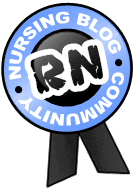...were students in the compressed RN program treated any differently from the "regular" BScN students? Do you find that your health sci bachelors and epidemiology master's(?) helped you in understanding the BScN material, and made you a better nurse? Do you feel that one needs a Bio/Biochem/Health Sci background to succeed in the accelerated nursing program?Here's the scoop, and honestly this is just my opinion of my experience so I don't know if that will help you at all but here is my response.
Or does it all come down to being able to successfully shove a needle into someone's veins and a Foley catheder into their bladder with consistency anyway, and all the BScN/Health Sci course stuff doesn't matter anyway?
Most compressed RN schools in Ontario have been introduced only recently as the need for RN's has increased. Because of this they are oftentimes working out kinks for the first few years. Also, most regular BScN classes are fairly well-established. My particular class was quite segregated from the 4-year program- because it was new and the student councils (etc) weren't used to including us. We received no 'pinning' ceremony or ritual nursey events, oftentimes the dates for fundraisers/events were planned the nights before major exams or while we were in clinical, we were forgotten for induction into special nursing organizations, and we weren't part of the general nursing graduation planning (this was our choice- by that time we just excluded ourselves from regular BScN stuff). I don't know if this has changed- it probably has as the program becomes more established. To be perfectly honest I pretty much preferred the way we kept to ourselves... I'm not one for the nursing fluff that is often generated surrounding 'social events'.
Not everyone in my class had a health science/biomed background, but most did. If you have never taken a science/health course, it may do you well to take at least one credit prior to nursing school (like anatomy or physiology) just so you can see how it goes. However if you enjoy the content and keep on top of things, doing the courses "excellerated" or "compressed" will be ok. It just means you don't have as much time for a social life or a job that you may have had if you were doing the regular time-frame. Most of my class, however, did have a part time job and managed to socialize regularly.
I find my background in health science helped more than my epidemiology when it comes to bedside nursing. It's all what you make of it though. Some days you are the task-completer. But most of the time you are constantly reprioritizing things based on data you receive, and the more knowledge you have, the better decisions you can make. The more you understand the global picture of both the patient and the disease the more I think you will appreciate things as well as provide better care. Anyone could start an IV or put in a catheter if given the training- not everyone could be able to understand why it is needed or what are its implications.
Did I need to have the other degrees to be able to do the job of the RN sucessfully? Quite frankly, no. My additional degree will help me later on when I'm trying to get a job in management or education if/when I go that route. I don't regret any decisions I made when I re-routed myself after a health science degree/masters, but sometimes I wonder where I would be now if I had done a double degree in Health Science/Nursing or gone right into nursing school out of highschool. Probably in less debt, but I would have still done a masters- albeit part time.
I'm not one to quote nursing theory (Gag me, please) but the one thing is true. No matter who you are your previous experience will play a part in your interaction with your patient. Whether it's a biochem/engineering/sociology/languages background, it will be a part of you and will influence you. It just depends on what you make of it.






1 comment:
Cool, thanks for answering my question. I actually have an engineering background, and I'm already planning to take a physiology course (among others) so I'll see if I like it.
Also, I'm a dude. Which leads me to another question: dudes in nursing. Have you found that the guys in your classes or at work are any less competent than the women? Do they get treated any differently at work by patients, nurses and doctors? How are they managing to fit in with the overwhelmingly female workforce?
Or is it (like the nursing theory you mention) that the male gender is just something you bring into your patient interactions, and you can make masculinity a positive part of the nursing experiene?
Post a Comment